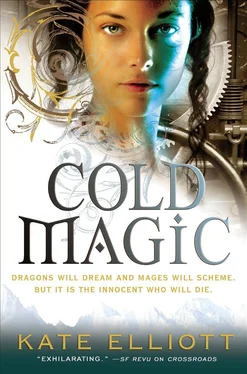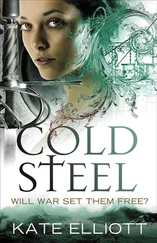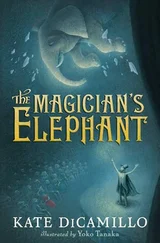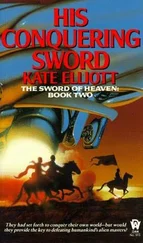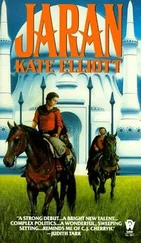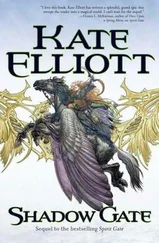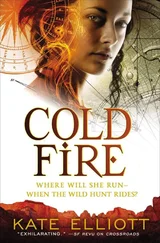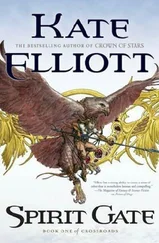Kate Elliott - Cold Magic
Здесь есть возможность читать онлайн «Kate Elliott - Cold Magic» весь текст электронной книги совершенно бесплатно (целиком полную версию без сокращений). В некоторых случаях можно слушать аудио, скачать через торрент в формате fb2 и присутствует краткое содержание. Жанр: Фэнтези, на английском языке. Описание произведения, (предисловие) а так же отзывы посетителей доступны на портале библиотеки ЛибКат.
- Название:Cold Magic
- Автор:
- Жанр:
- Год:неизвестен
- ISBN:нет данных
- Рейтинг книги:4 / 5. Голосов: 1
-
Избранное:Добавить в избранное
- Отзывы:
-
Ваша оценка:
- 80
- 1
- 2
- 3
- 4
- 5
Cold Magic: краткое содержание, описание и аннотация
Предлагаем к чтению аннотацию, описание, краткое содержание или предисловие (зависит от того, что написал сам автор книги «Cold Magic»). Если вы не нашли необходимую информацию о книге — напишите в комментариях, мы постараемся отыскать её.
Cold Magic — читать онлайн бесплатно полную книгу (весь текст) целиком
Ниже представлен текст книги, разбитый по страницам. Система сохранения места последней прочитанной страницы, позволяет с удобством читать онлайн бесплатно книгу «Cold Magic», без необходимости каждый раз заново искать на чём Вы остановились. Поставьте закладку, и сможете в любой момент перейти на страницу, на которой закончили чтение.
Интервал:
Закладка:
I froze, as still as the table, as silent as the couches, as unexceptional as the floor he stood on and never noticed because it never need be noticed. His gaze flowed right over me without a flicker. He shrugged, closed the door, and returned to the table, again turning his back as he settled in beside the visitor.
"I haven't much time. I'm late already," said the visitor in the impatient tones of a man of high status who expects deference. "You said you possess a recently published volume on the subject of aerostatics."
I dared not risk shifting the top book to get the one beneath. Instead, I swiped up both books and skated straight for the open library door, my back to the men, my skin tingling as with the arrows of discovery pinioning my body. But neither called out. Neither looked. Neither noticed me, someone who was no more important than the other furniture in the room.
At the door, I slipped into the dim alleys of shelving. Bee glided in after me. We skittered to the back aisle and froze there as the headmaster's dog walked straight down the central aisle and into the headmaster's office. We saw his figure flash by, but he never looked down the side alleys to see our shapes huddling in the shadows. Bee touched my wrist to claim her sketchbook. 1 handed it to her. As for the other book, the one I'd been forced
to pick up, I felt all I could do was place it on a shelf and hope the headmaster and his dog and servant would think it had been misflled.
As I raised it, I read its boldly stamped title: Lies the Romans Told.
Was there truly a book written on the venerable theme of lying Romans? Here, all along, I had just thought it a figure of speech, as one might say hot-tempered Celts, sharp Fula bankers, war-loving Iberians, fashionably rude Parisi, or noble Kushites. Obviously only a person of Kena'ani ancestry would even have bothered to write an essay on lying Romans, because out of all their ancient enemies, the Romans had hated and maligned us the most. The memory of Rome's empire was revered in histories today, even among the descendants of the many Celtic peoples and nations that had battled the imperial legions so fiercely centuries ago. After all, what would Europa be without Roman roads, the public sewers, and extensive aqueducts? Here in Adurnam, as most everywhere in Europa, we spoke a mixed language whose roots were Old Latin. Driven by curiosity- what else could you expect from a cat? — I flipped open the cover to the title page, bold black print on white paper repeating the title and recording the author's name.
Daniel Hassi Barahal.
My father's name.
Bee pinched me back to earth.
The headmaster's assistant clip-clapped briskly back along the central aisle without seeing us and out into the formal library. He shut the door into the library hall behind him.
I knew I ought to leave the book, but I could not bear to. I dropped it into my schoolbag and grabbed Bee's sketchbook to thrust in beside it. We hurried down the back aisle and crept into the headmaster's office. The clock ticked faithfully on. At the door leading into the corridor, I bent to listen at the keyhole.
No one moved in the corridor beyond.
A hoarse voice behind us whispered, "Rei vindication
We bolted out of the office, shutting the door behind us, and stood panting and trembling in the empty corridor.
"That couldn't have been the poet's head!" Bee touched the door, as if to make sure it separated us from whatever had spoken inside.
A rush like streaming water poured through my body, the sensation of dizziness and drowning so strong I could not speak. Bee's face was shining from exertion and triumph and nerves, and suddenly I knew I was about to start laughing hysterically. I ran to the marble stairs, Bee right behind me. We had to clutch the wooden railing as we descended at a stately pace simply to stop ourselves from keeling over with the weight of the guffaws we must hold inside. I could not look at her. Meeting her eye would be fatal. From the stairs, we dashed across the glass-roofed inner court and tumbled into the high, haughty vault of the entrance hall with its carved plants.
"There you are! Late for luncheon. Running about unattended! What has the headmaster had to say to you?"
Maestra Madrahat uncoiled herself from the proctor's bench placed to survey the entrance hall; one teacher or attendant was always stationed on the bench when college was in session to watch for pupils sneaking about where they weren't allowed.
I leaped into the breach, not needing to feign the breathless fervor of a chastened penitent who has barely escaped the lash, because my heart was pounding so hard I could scarcely suck in enough air to talk, and my pulse was rushing in my ears like a whispering voice: Had the head of Bran Cof spoken? Did my father write that book?
I could babble with the best of them. "He spoke to us, maestra. See poor Beatrice's tears'. He said to accompany him down to luncheon. But a ribbon on my slipper broke, and I had to pause to see if I might fix it. So he came ahead and we stayed behind. Now we are here."
This stream of words made her frown, but my statement was so unexceptional she could not protest. I stared at the stolid turnip adorning the wall relief, avoiding Bee's face altogether lest I entirely lose my composure and burst into uncontrollable snorts of laughter fueled by excitement, relief, and the frightening memory of that disturbing whisper.
A huge crash, plates dropping and smashing on the floor, splintered the air, followed by shrieks of surprise and shouts of startled laughter from the dining hall. Even the maestra flinched at the tremendous sound. Bee hid her face in her hands, shoulders quivering. Hot tears started out of my eyes as I bit my lower lip. Hard.
In the dining hall, everyone began talking at once.
I had not taken three breaths before two figures appeared at the dining hall entrance.
The maestra muttered, "Clumsy cow! How long have I been telling them they must hire a better class of servants rather than these used-up, unsightly widows of crippled soldiers!"
Bee sucked in her breath as hard as if she'd just been knifed under the ribs. I thought she meant to ruin everything by spitting in the maestra's bitter face, but instead she looked toward the arched entrance. Her expression altered, brightened; indeed, she positively glowed like the spring sun rising.
Maester Amadou emerged from the dining hall at a slow walk, supporting an elderly serving woman. The old dame was clearly rattled and unsteady on her feet; one of her hands was streaked with blood from where she had taken a gash.
He guided her across the room toward us. Bee became practically refulgent. No trading vessel's captain could have appeared as ecstatically delirious at seeing land in the wake of a mast-ripping storm.
But he was not looking at Bee.
"You are just the one to know what to do, Maestra Madra-hat," he said in a mild accent tuned with a musical soporiferous-ness. "The ancilla needs medical attention. She has cut her hand on the crockery."
The old woman turned a glazed look up to his face. I wasn't sure if she was infatuated or in shock from blood loss. Yet, after all, she looked old and weary and pale, and if Bee had known what I had just been thinking, she would have kicked me and I would have deserved the kicking.
"If she had not clumsily dropped the tray, she would not have cut herself," said the maestra ungraciously.
Maester Amadou smiled the comment into oblivion. "While it was indeed she who dropped the tray, it was not the ancilla's fault, maestra. I had a leg stretched out in an inconsiderate fashion. The ancilla stumbled over my rude foot."
The old woman gave him a startled look, which only I noticed because both Bee and the maestra could not take their eyes off his smile. He was not a particularly tall young man-he was barely taller than I was, although it was true I was tall for a woman-and he looked extremely well in his fashionable clothes, a tailored dash jacket of indigo cloth and a patterned kerchief tied at his neck in the informal style known as "the Buccaneer."
Читать дальшеИнтервал:
Закладка:
Похожие книги на «Cold Magic»
Представляем Вашему вниманию похожие книги на «Cold Magic» списком для выбора. Мы отобрали схожую по названию и смыслу литературу в надежде предоставить читателям больше вариантов отыскать новые, интересные, ещё непрочитанные произведения.
Обсуждение, отзывы о книге «Cold Magic» и просто собственные мнения читателей. Оставьте ваши комментарии, напишите, что Вы думаете о произведении, его смысле или главных героях. Укажите что конкретно понравилось, а что нет, и почему Вы так считаете.
